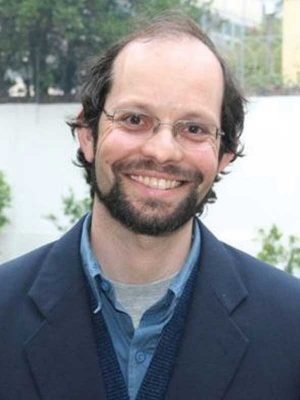By Rabbi Malcolm Matitiani
The Torah commands us to take the fruit of the goodly tree, branches of palm trees, boughs of thickly leaved trees and willows of the brook and to rejoice with them before God for seven days of Sukkot (Leviticus 23:40).
The rabbis interpreted ‘thickly leaved trees’ to be myrtle branches (Sukkah 32b) and the ‘fruit of the goodly tree’ to be the etrog (Sukkah 35a). Once the identity of the Four Species had been determined, namely a palm branch, two willow branches, three myrtle branches and an etrog, the rabbis provided a rationale for the Arba’ah Minim.
One explanation found in the collection of midrashim on the Book of Leviticus, Vayikra Rabbah (30:12) states that each of the Four Species represent a category of Jews. Jews learned in Torah who perform good deeds are symbolised by the etrog, which has a good taste and an equally good aroma. Torah scholars without good deeds to their credit may be compared to the palm, which produces tasty fruit (dates) but is devoid of an aroma. Those who perform good deeds but lack Torah scholarship are like the myrtle, which has an aroma but is tasteless, and Jews who are neither learned in Torah nor perform righteous acts are like the willow, which has neither taste nor aroma. By joining the Four Species together five days after Yom Kippur we remind ourselves that when the People of Israel is regarded as a whole the failings of some are compensated for by the virtues of the others.
This explanation of the Four Species teaches us that each individual Jew, created by, and in the image of God, has an importance no matter their failings. It is only by working together as a team, congregation, community or society that we can truly make great strides in tikkun olam, in improving the world.
We need to look beyond our theological differences and cease to judge others for their religious observance or non-observance, while taking very seriously the Torah directive: lo tisna et achiycha bilvavecha hochei-ach tochi-ach et ‘amiticha ve-lo tisa alav chet, “You shall not hate your kinsfolk in your heart. Reprove your kinsman but incur no guilt because of him” (Leviticus 19:17). We are duty bound to rebuke our fellow Jew when he or she acts unethically and immorally, but we should not chastise him or her in such a manner that we incur guilt, nor are we permitted to hate our fellow Jew. The rabbis (Sanhedrin 38a) ask why God created human beings as a single individual (Genesis 1:27, 2:7) and not as a whole community and they answer their own question by stating that God created Adam so that no-one can claim superior lineage over anyone else.
All human beings, no matter their religious, ethnic, cultural or political persuasion or affiliation, are descendants of one ancestor. Another explanation posits that God created a single human being to teach that “whoever destroys a single soul of Israel scripture imputes [guilt] to him as though he had destroyed a complete world; and whosoever preserves a single soul of Israel, scripture ascribes [merit] to him as though he had preserved a complete world” (Sanhedrin 37a). It is interesting that many manuscripts of the Talmud read: “whoever destroys a single soul scripture imputes [guilt] to him as though he had destroyed a complete world; and whosoever preserves a single soul, scripture ascribes [merit] to him as though he had preserved a complete world”.
The universalistic rabbinic interpretation of the creation of Adam (humankind) is a precedent for us to extend the lesson of the Four Species that are waved on Sukkoth to include all humankind. Every individual, group and culture makes a contribution to the diverse and colourful world we inhabit. Just as the Four Species would not be complete without all four varieties, so the world would not be complete without the diversity that exists in the plant, animal and human worlds.
When we take up the lulav and etrog we are reminded that to make true teshuvah we must respect the life and rights of all Jews and all human beings. We must learn to protect our own individuality, culture and ideologies while safeguarding the rights of others to practise their culture and to profess their religion.
The universal value of respecting the rights of the other and recognising that all human beings are created in the Divine image and have an important part to play in bettering the world gives Sukkot a powerful and profound value, paralleling the universal theme of Pesach, that of the value of human liberty. This is expressed by Zachariah who prophesied: “All who survive of all those nations that came up against Jerusalem shall make a pilgrimage year by year to bow low to the Sovereign God of Hosts and to observe the Feast of Sukkot.” (Zechariah 14:16)











